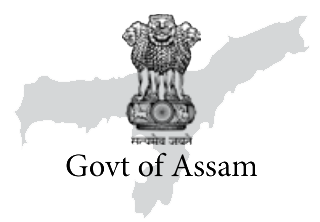As you peep into an Assam-type house attached to a very busy highway on the Barpeta-Pathsala Road, you will spot a sagely person walking leisurely in the corridor, ensuring that there is peace and tranquillity in that geographical space and within his own hearts. For any sign of commotion in Tapoban, the house he has so named, will be one which will cause anxiety to him. Tapoban in the literal sense means a dwelling place of the sages, with sylvan surroundings.
Here, the sage is Kumud Kalita, and those around him are special children from all over Assam who do have no clue about their own names, surnames, and parents.
“Since childhood, I wanted to do something for divyangs and special children. This has been a life of struggle for me. There have been a few moments of sheer and immense happiness. However, mostly, the days, months and years have gone by in anxiety of one or the other sorts,” Kalita, a teacher in Political Science in Pathsala College, told Asom Barta.
However, it was only in 2005, that he could finally give a shape to his dream, and opened Tapoban, a house for the welfare of the special ones. Here children with special needs and those who are orphans stay together in harmony under his fatherly guidance.
“I came from a very difficult financial background. I have seen struggles right from my childhood. We had to think twice about our meals. I would wear a gamosa to school. I had a fondness for studies, and therefore I managed to finance my education by doing odd jobs, like working in a roadside dhaba, tutoring students. I earned my Masters in Political Science from Gauhati University in 1989. It was my mother who wanted us to study. My father was a farmer. His labour on the farm was encouraging for me. He had unflinching trust and confidence in me,” he reminisced.
Kalita credited his character formation to his teachers from the University. “Although I was an average student, yet professors not only of my own department but also those from other Departments helped me a lot.”
“When in University, I came across the organisation Assam Sishu Kalyan Sadan in Sundarbori nearby. Then there was this SoS Village near Borjhar. I used to go there to be with the children. I think this influenced my calling of helping the under-privileged children get some degree of dignity and respect from the society that generally scorns them,” he told this newsletter.
Since Kalita knew that he would require resources to help these children, he started trading in books. “I used to buy books from publishers in Guwahati and sell them for a profit. I would then distribute this profit among poor children. This gave me a lot of satisfaction, and a happiness which I cannot define. I then decided that all my life, I will be of help, and devotion to them,” he confided to this reporter.
“After my Masters, I joined Pathsala College as a lecturer. I ideated on contributing 50% of my salary to build a home for these children. This was the genesis of the infrastructure you see here today,” he said while pointing out to a school on the campus with a lift in it. “It is now an abode of several children. We impart education in Braille. We have physiotherapy and speech therapy for them. Out of the 120-odd students in the school, nearly 70 are from other parts of the State,” he said. For Kumud and his wife Lucky Patgiri whom he married in 1999, all these children are like their own, for they decided immediately after marriage that they would not have ‘one of their own’. “These children address us as Ma and Deuta, and we reciprocate to this with our unselfish love.” Some of these children are now pursuing their studies in Guwahati.
Every child who comes here has a story. Even out of them the story of Shristi is different. “She was left unattended near Kamakhya Temple as a new-born. We brought her to Tapoban and adopted her. She has been with us for 13 years. She can neither walk nor talk, despite various treatments. She loves to play with me and wants to be by my side,” said Kalita.
Today, Kalita’s name is a synonym with Tapoban, and vice versa. This had not been possible without support coming from well-wishers who saw in his actions, a dedication without parallel. Gyanendra Sarmah, and Bhupendra Kumar Das being two among many.

“I had always wanted to do something for the society. On the advice of a former DGP Nishinath Changkakoty, I reached out to Tapoban to offer something based on my capacity. Until I saw them, I had always felt that such acts of devotion and sacrifice can only be found in the West. But Kumud and his wife Lucky have proved us wrong, said Sarma.
Writer and novelist Bhupendra Kumar Das had very recently agreed to finance the construction of a building in Tapoban in the name of his deceased wife, Binapani Das. “What Kalita has done for these children is special. Hence, I decided to donate this sum to Tapoban.” Das told this newsletter.
Recognizing his dedication, the Delhi Commission for Protection of Child Rights recently awarded him the Children’s Champion Award after scrutinising nominations from over 1,100 individuals and organisations across the country. “Awards bring temporary satisfaction. But what they also do is to tell the society and philanthropists around the country that we need help to serve better,” said Kalita reflecting on the material challenges ahead of him,
and Tapoban.













